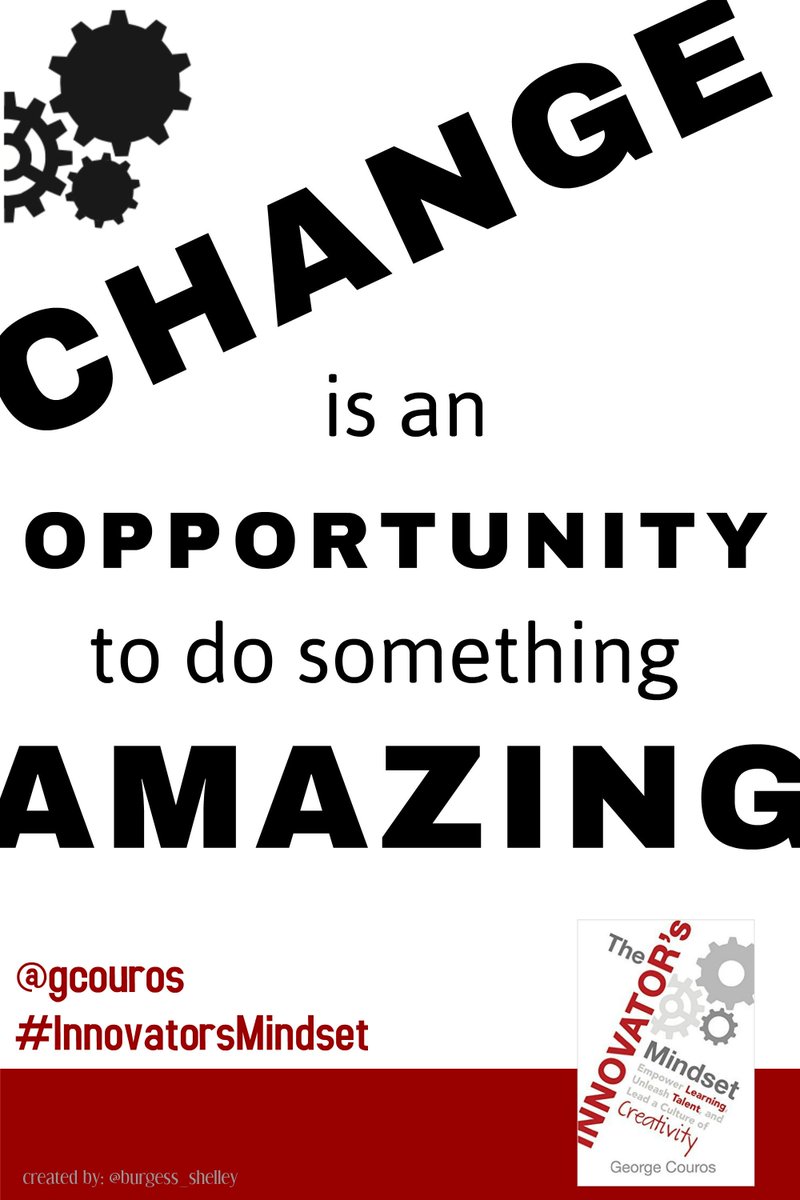I have taught and read the Innovator's Mindset several times. I read it the first time for me, the second time for a book study for my school district's Innovation Teams, a third time through the lens of a pre-service teacher when I assigned it to my University of WI - Oshkosh students, and now again for the #IMMOOC book study. I have reflected on it repeatedly, blogged about it quite a few times, and have had/participated in multiple book studies on it, recommended it to hundreds of people. In all these discussions, the quote that seems to resonate with the most people is always:

It's easy to apply this quote to education. Our world in EDU is constantly changing. New roles are created, new curriculum is adopted, new technologies are being introduced all the time. Our world is practically fluid, rarely do things stay the same. For some, these changes in education are expected and while not always embraced, they are at least accepted. For others, change is a difficult and stressful time. The quote resonates with people because it takes the constantly fluidity of education and puts a positive spin on it. We are perpetually changing, and with that change, you can either fight it or take it as an opportunity and run with it. In that case, it's hard to imagine anyone not choosing to be amazing.
As another semester of my UWO students started and we were discussing the beginning of the book, and one student said, "I like this quote because I think it doesn't only apply to education and our jobs, but applies to our whole lives. We are in college. We've experienced big changes in our lives when we came here, and we can choose to do something amazing with our experience." I have been reflecting on what she said since that class, and it's true. Students in college are expected to make big decisions that will affect their lives forever. I remember George telling a story in one of his keynotes about a student who said she was expected to go out and change the world when she left for college, but shortly before that she had to raise her hand to go to the bathroom when she was in high school. It's a big change when you go from the constraints of high school to the openness of college, and the change is definitely a choice and an opportunity to do something amazing.
I've experienced this myself recently with taking my new position as Director of Innovation & Technology. And as much as I love my new position, there have absolutely been moments when I've felt like the amazing part of the change might not come, or "Who am I to think that I can do something amazing at all?". Change in any form is hard, and to convince yourself to do something amazing with that change can be even harder. I think about friends who are going through tough times personally: job changes, divorce, financial trouble, and it's possible that this quote might be able to be applied to all of that. In any of these cases, including in the classroom, the work related changes, the college student, the job change, the personal issues...the amazing part of the change is going to take some work. It's probably not going to be a lightbulb moment or some epiphany where you think, "Ahhhh...there's the amazing!" but rather something that takes diligence and commitment, hard work and motivation, which can be the hardest to muster during difficult times. I think that remembering great quotes like these help us work through those changes in order to find the amazing, which brings me back to another one of my favorite quotes, and I think these two go hand-in-hand:


